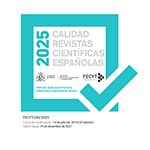Apuntes sobre teorías lingüísticas, sus postulados gramaticales y su impacto en la enseñanza
Resumen
Hablar de gramática implica, como primer paso, realizar una serie de precisiones terminológicas debido a la polisemia y a las ambigüedades que emergen de sus múltiples usos, campos de aplicación y modelos teóricos de referencia. La definición de gramática como un conjunto organizado de saberes respecto del sistema de la lengua es un cerco semántico consensuado dentro del campo de la lingüística. Por su parte, cada teoría construye su andamiaje conceptual en función de sus supuestos epistemológicos particulares y sobre los cuales cimientan la totalidad de su edificio teórico, metodológico y analítico. En este contexto múltiple, dinámico y productivo, el propósito que guía la elaboración de este trabajo es la indagación respecto de problemáticas tales como: qué es una gramática, qué sentidos “esconde” ese término genérico, qué alcances tiene al interior de los postulados teóricos de cada paradigma lingüístico y qué impactos han tenido las diferentes teorías científicas sobre el sistema de la lengua en el discurso pedagógico. A tales efectos analizaremos discursivamente algunos fragmentos de postulados gramaticales que corresponden a distintas teorías lingüísticas a saber: gramática tradicional-normativa, gramática estructural, gramática generativo-transformacional, gramática funcional y gramática cognitiva. Para ello consideraremos como aspectos a revisar los siguientes supuestos teóricos: objetivo de la teoría lingüística, objeto de estudio, definición de lenguaje que subyace, puntos de vista adoptados, métodos desarrollados, metalenguaje empleado, entre otros. Por otra parte, también indagaremos sobre aquellos modelos que ingresaron alternativamente en el discurso escolar y por ende, en las aulas, con el objetivo de rastrear sus impactos en la enseñanza de la lengua y de la gramática y la vigencia de cada uno de ellos.Descargas
Descarga artículo
Licencia
La revista Didáctica. Lengua y Literatura, para fomentar el intercambio global del conocimiento, facilita el acceso sin restricciones a sus contenidos desde el momento de su publicación en la presente edición electrónica, y por eso es una revista de acceso abierto. Los originales publicados en esta revista son propiedad de la Universidad Complutense de Madrid y es obligatorio citar su procedencia en cualquier reproducción total o parcial. Todos los contenidos se distribuyen bajo una licencia de uso y distribución Creative Commons Reconocimiento 4.0 (CC BY 4.0). Esta circunstancia ha de hacerse constar expresamente de esta forma cuando sea necesario. Puede consultar la versión informativa y el texto legal de la licencia.










